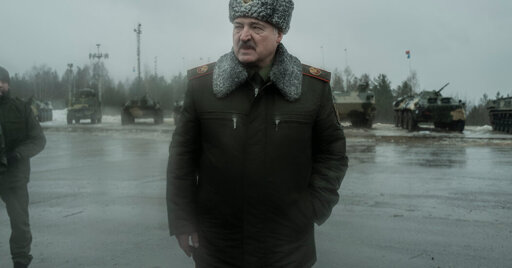The below-the-radar American visit to Minsk, the Belarusian capital, on Wednesday came just a day after President Trump had a long telephone call with President Vladimir V. Putin of Russia. Both events signaled Washington’s departure from a yearslong policy of trying to isolate leaders out of favor in the West because of their repressive policies and the war in Ukraine.
After talks with Mr. Lukashenko, Christopher W. Smith, a deputy assistant secretary of state, and two other American officials drove to a village near the border with Lithuania. There, courtesy of the Belarusian KGB, three people who had been jailed — an American and two Belarusian political prisoners — were waiting to be picked up.
. . .
The next step, Mr. Smith told a gathering of Western diplomats on Thursday in Vilnius, according to people who attended, is a possible grand bargain under which Mr. Lukashenko would release a slew of political prisoners, including prominent ones. In return, the United States would relax sanctions on Belarusian banks and exports of potash, a key ingredient in fertilizer, of which Belarus is a major producer.



The geopolitical hostage bazaar is open for business again, and Lukashenko’s circus just added new clowns. Of course a dictator with a crumbling economy and a grip on power thinner than his mustache would dangle foreign prisoners like piñatas—authoritarians only understand the currency of desperation.
Meanwhile, the State Department’s “diplomatic channels” resemble a toddler negotiating with a hornet’s nest. Soft power crumbles when your opponent’s playbook was written by the KGB. Every concession fuels the next shakedown, a parasitic cycle where principles get traded for photo ops. The West keeps feeding the crocodile, hoping it’ll eat them last.
But hey, at least someone’s thriving in this dystopian barter system.